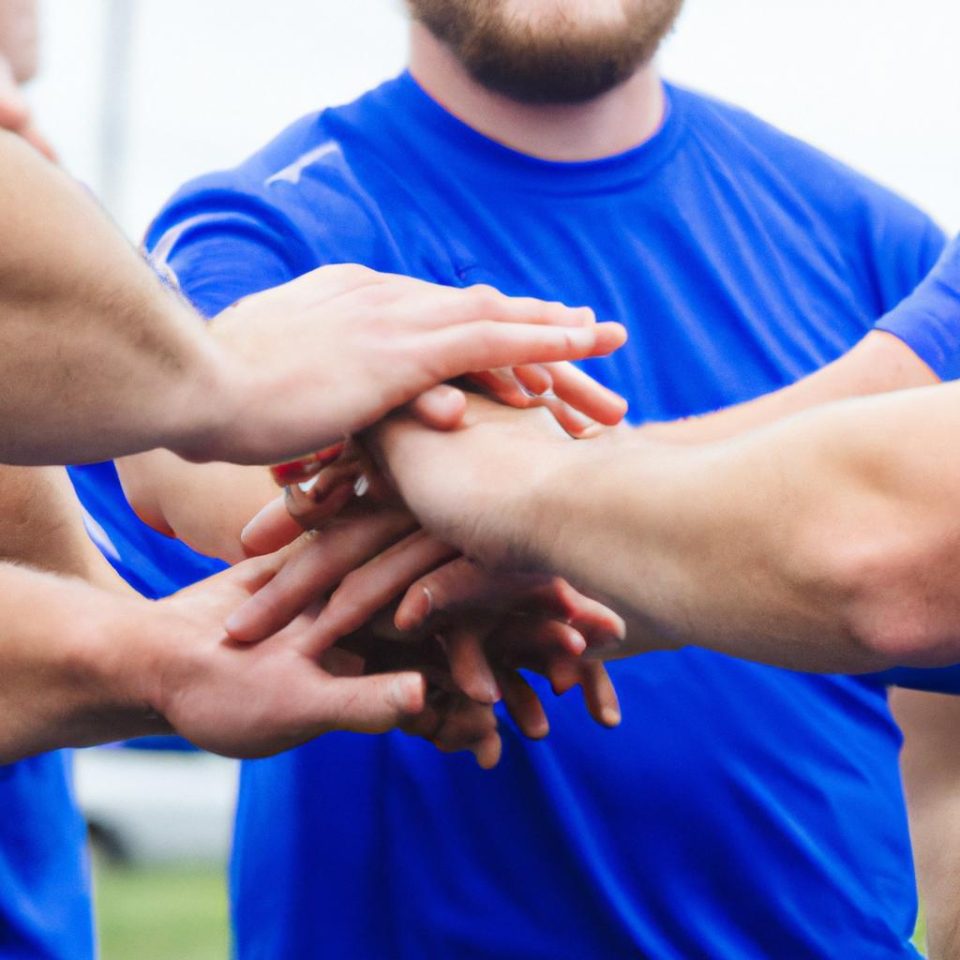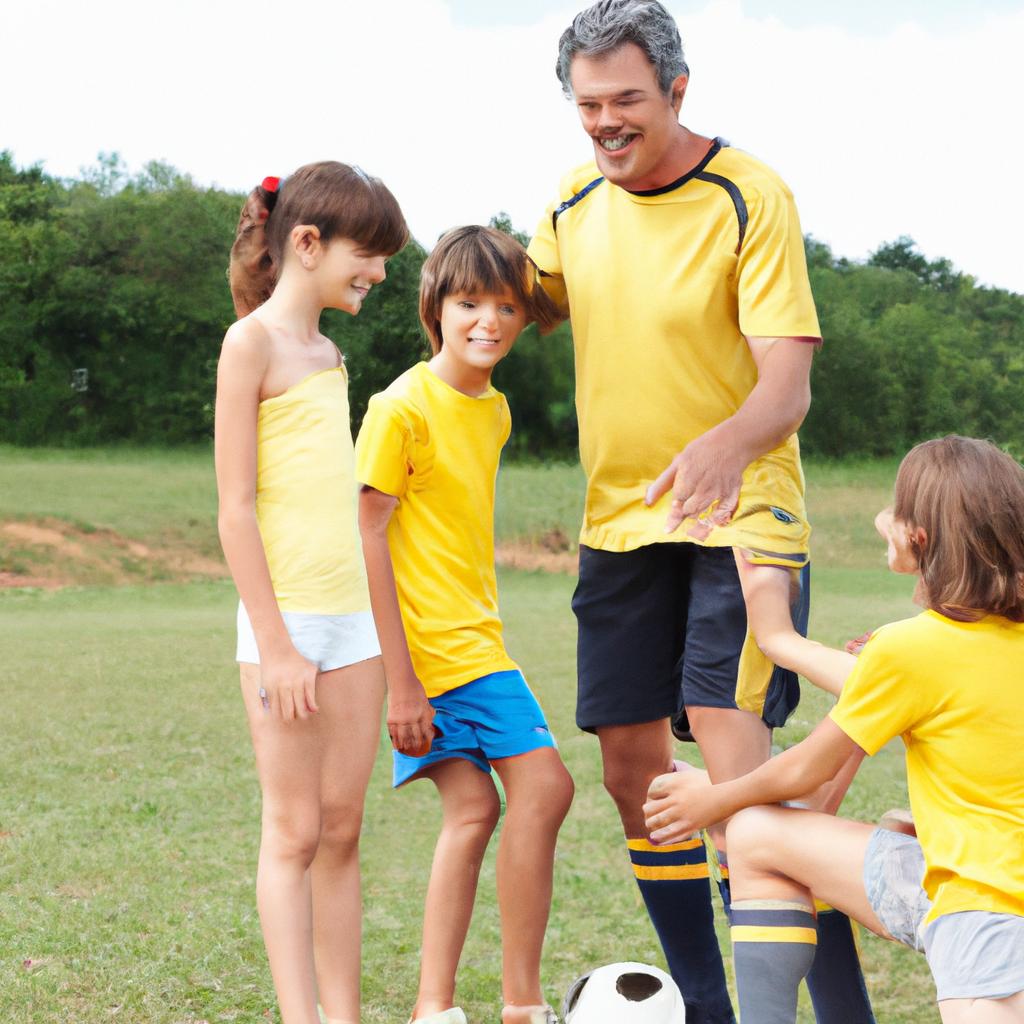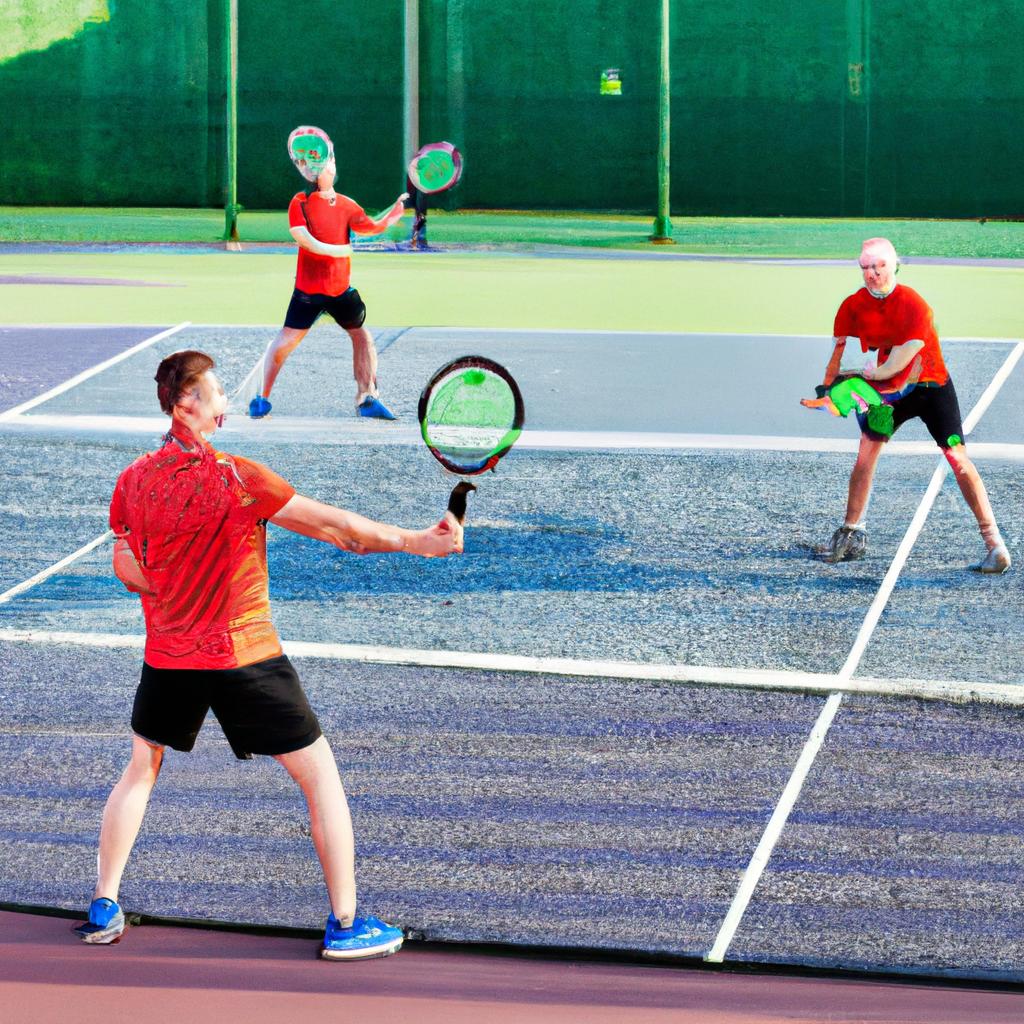Strength in Unity: How Team Sports Foster Camaraderie and Enhance Teamwork Skills

In a world increasingly defined by individual pursuits and solitary achievements, the age-old adage “strength in unity” rings truer than ever, especially within the realm of team sports. Whether on a sunlit soccer field, a resonant basketball court, or the rhythmically synchronized lanes of a swimming pool, athletes are drawn together by a shared purpose, transcending personal ambitions to forge a collective identity. This synergy not only fuels their drive for victory but also cultivates invaluable life skills—camaraderie and teamwork—that extend far beyond the boundaries of the game. As we delve into the multifaceted relationship between team sports and the development of social bonds, we uncover how the lessons learned in the heat of competition can shape individuals into more empathetic leaders and cooperative colleagues in their everyday lives. Join us as we explore the transformative power of teamwork in fostering unity, resilience, and mutual support within not just sports, but the broader tapestry of society.
Fostering Friendships Through Shared Goals
In the realm of team sports, friendships often blossom in the fertile ground of shared objectives and mutual aspirations. When athletes unite towards a common goal—be it winning a match, mastering a technique, or achieving personal bests—the bonds forged are profound and lasting. This collective endeavor enhances not only performance but also emotional connections, as players experience the highs and lows of competition side by side. Key aspects of this relationship-building process include:
- Collaboration: Working together encourages communication and strengthens interpersonal skills.
- Support: Team members provide encouragement and motivation, creating an environment where each individual feels valued.
- Trust: Relying on each other in crucial moments builds a deep-seated trust that transcends the field.
Through shared goals, teammates create a tapestry of shared experiences that enrich their relationships beyond the game. This sense of belonging fosters loyalty and camaraderie, leading to lasting friendships rooted in collaboration and shared triumphs. To visualize just how these elements intertwine in fostering connections, consider the following table that encapsulates typical team dynamics in sports:
| Team Dynamics | Examples |
|---|---|
| Group Challenges | Participating in team drills or obstacle courses |
| Celebrating Wins | Post-game gatherings or rewards ceremonies |
| Facing Adversity | Rallies during losses or injuries |

Building Trust and Accountability on the Field
In the dynamic environment of team sports, establishing **trust** and **accountability** among teammates is paramount. When athletes step onto the field, they not only bring their physical skills but also their commitment to one another. This foundation of mutual respect fosters an atmosphere where everyone feels safe to share ideas, take risks, and express vulnerabilities. By encouraging open communication, team members learn to rely on each other, creating a synergy that enhances performance. They engage in activities that emphasize shared goals, allowing each player to appreciate the strengths and weaknesses of their peers, which in turn cultivates a deeper understanding of their roles within the team.
Moreover, accountability in sports extends beyond the field. Players hold each other responsible for their individual contributions, ensuring that everyone is performing at their best. This structure can be enhanced through the use of performance reviews and team meetings where athletes discuss challenges and successes candidly. Key elements that contribute to a successful trust-building environment include:
- Clear communication: Regular dialogues about goals and strategies.
- Consistent feedback: Constructive criticism aimed at personal and team improvement.
- Mutual respect: Valuing each member’s input and effort.
- Shared accountability: Understanding that every win or loss affects the entire team.
| Element | Impact on Team |
|---|---|
| Trust | Enhances cooperation and reduces conflict. |
| Communication | Facilitates better strategy and on-field execution. |
| Respect | Boosts morale and fosters a positive environment. |
| Accountability | Drives commitment and personal responsibility. |
By actively cultivating these aspects, teams not only improve their cohesiveness on the field but also create lasting friendships that extend beyond sports. This camaraderie promotes resilience, encouraging athletes to support one another through both victories and defeats. As a result, a team’s ability to trust and hold each other accountable ultimately becomes a competitive advantage, transforming individual efforts into collective triumphs.

Skills Beyond Sports: Transferable Teamwork Lessons for Life
Through the rigors and rewards of team sports, individuals learn to embrace **diverse perspectives** and appreciate each member’s distinct strengths. The dynamics of working toward a common goal foster a sense of unity that often transcends the playing field. Players navigate challenges such as resolving conflicts, communicating effectively, and practicing empathy, all of which are crucial life skills. These experiences translate seamlessly into personal and professional settings, where collaboration and mutual respect are essential for success.
Moreover, the lessons in accountability and commitment learned on the field cultivate strong work ethics. Regular practices and maintaining team discipline ensure that individuals develop a sense of responsibility, not only to themselves but also to their teammates. This environment of mutual support fosters resilience and adaptability, key attributes needed in various aspects of life. Here are some of the valuable teamwork skills acquired through sports:
- Communication: Enhancing verbal and non-verbal conveying of ideas.
- Problem-solving: Overcoming obstacles collectively.
- Leadership: Identifying when to step up and guide others.
- Trust-building: Fostering reliability and support among peers.
In Retrospect
As the final whistle blows and the scoreboard reflects the culmination of hard-fought teamwork, it becomes clear that the true value of team sports extends far beyond the wins and losses. The shared experiences on the field, the collective struggles, and the victories forged in unity create bonds that transcend the boundaries of the game.
In the spirit of camaraderie, athletes discover not just how to play together, but how to grow together. Every practice, every game, and every moment in the huddle reinforces the essential life skills of communication, trust, and collaboration. These lessons resonate well into adulthood, providing a foundation for future endeavors—be it in the workplace, community, or personal relationships.
So, whether you’re putting on cleats for the next game or simply cheering from the sidelines, remember that in the arena of sports, strength is not just a measure of individual prowess, but a celebration of unity. As we lace up for future matches, let’s carry forward the spirit of teamwork, knowing that together, we are always stronger.





